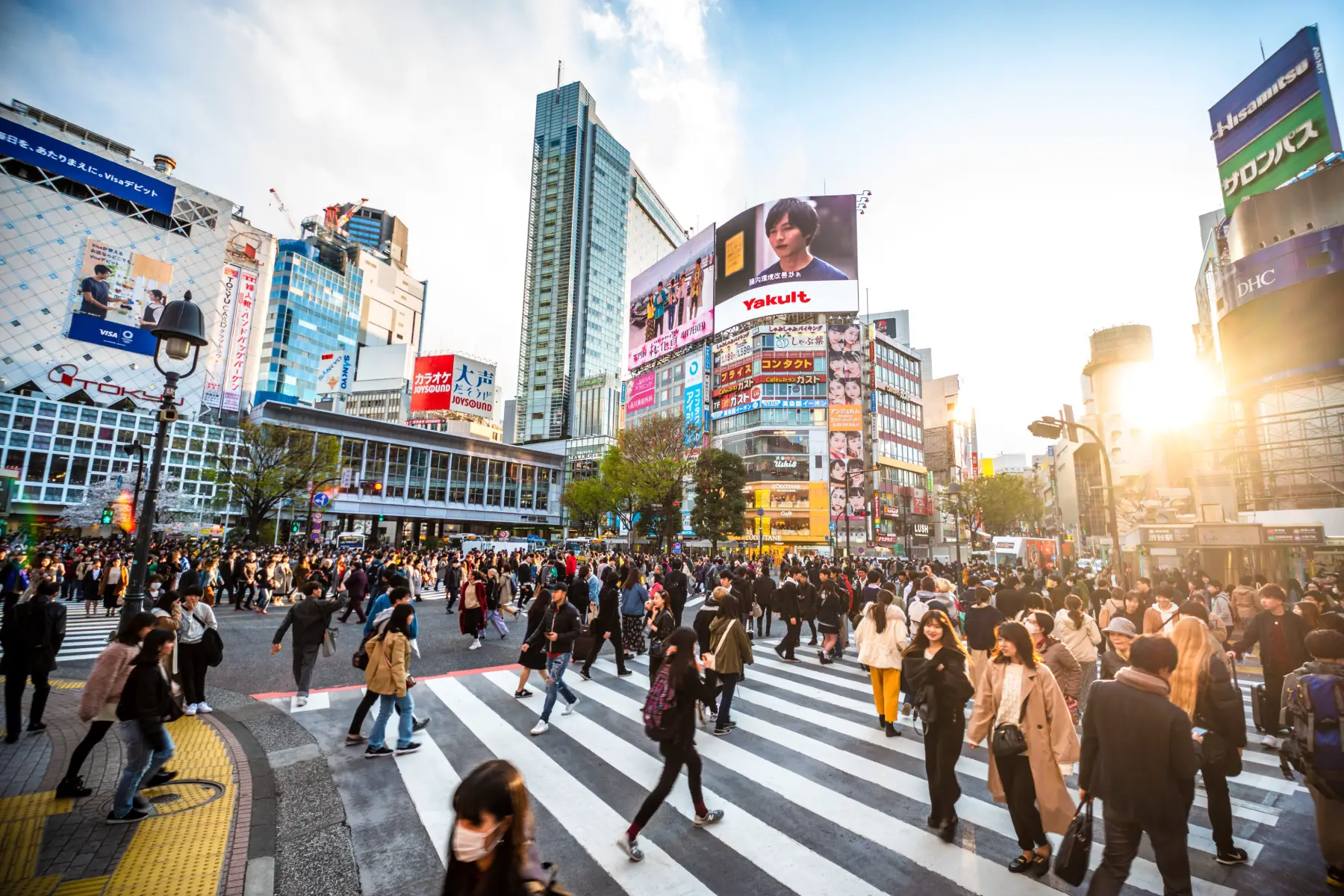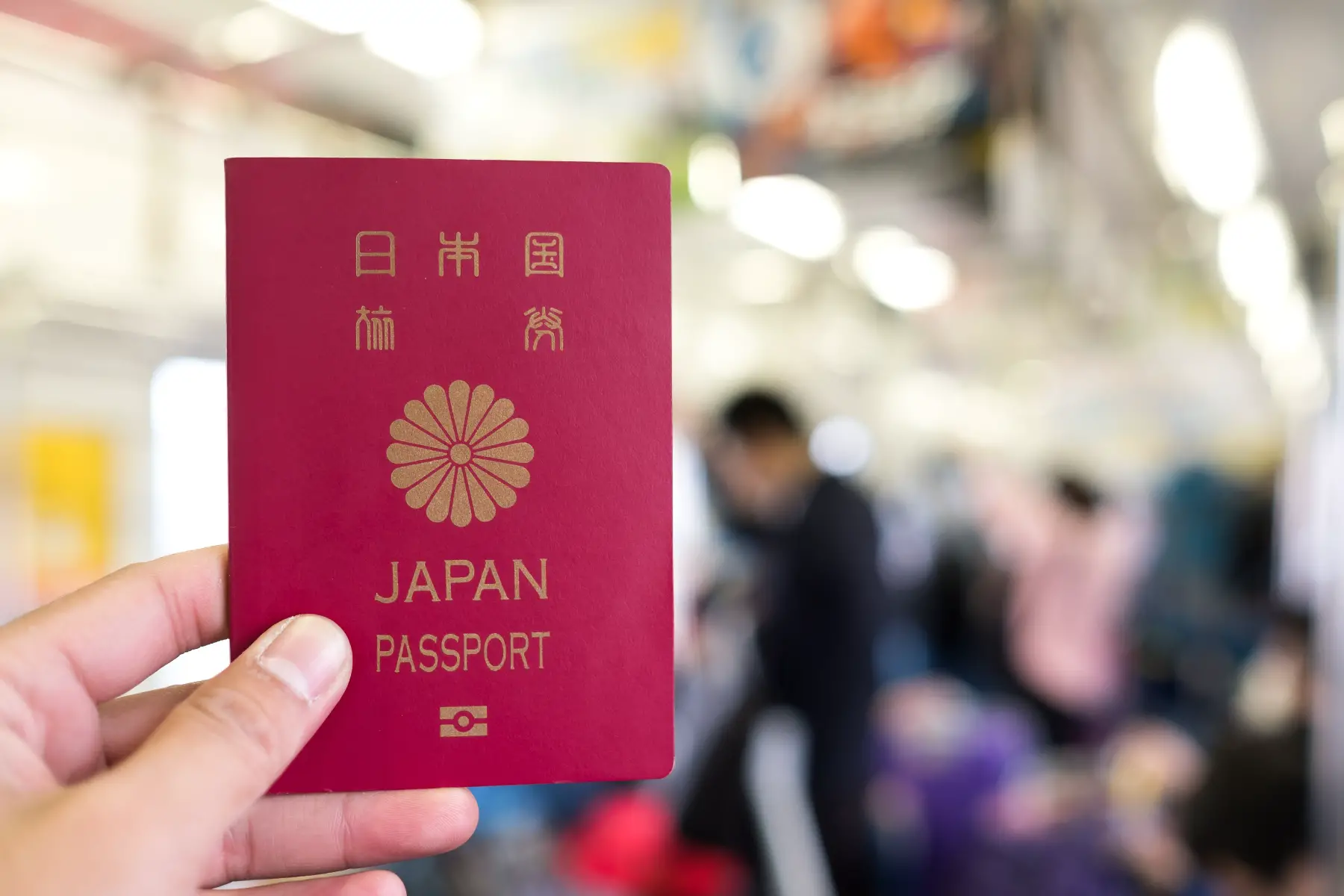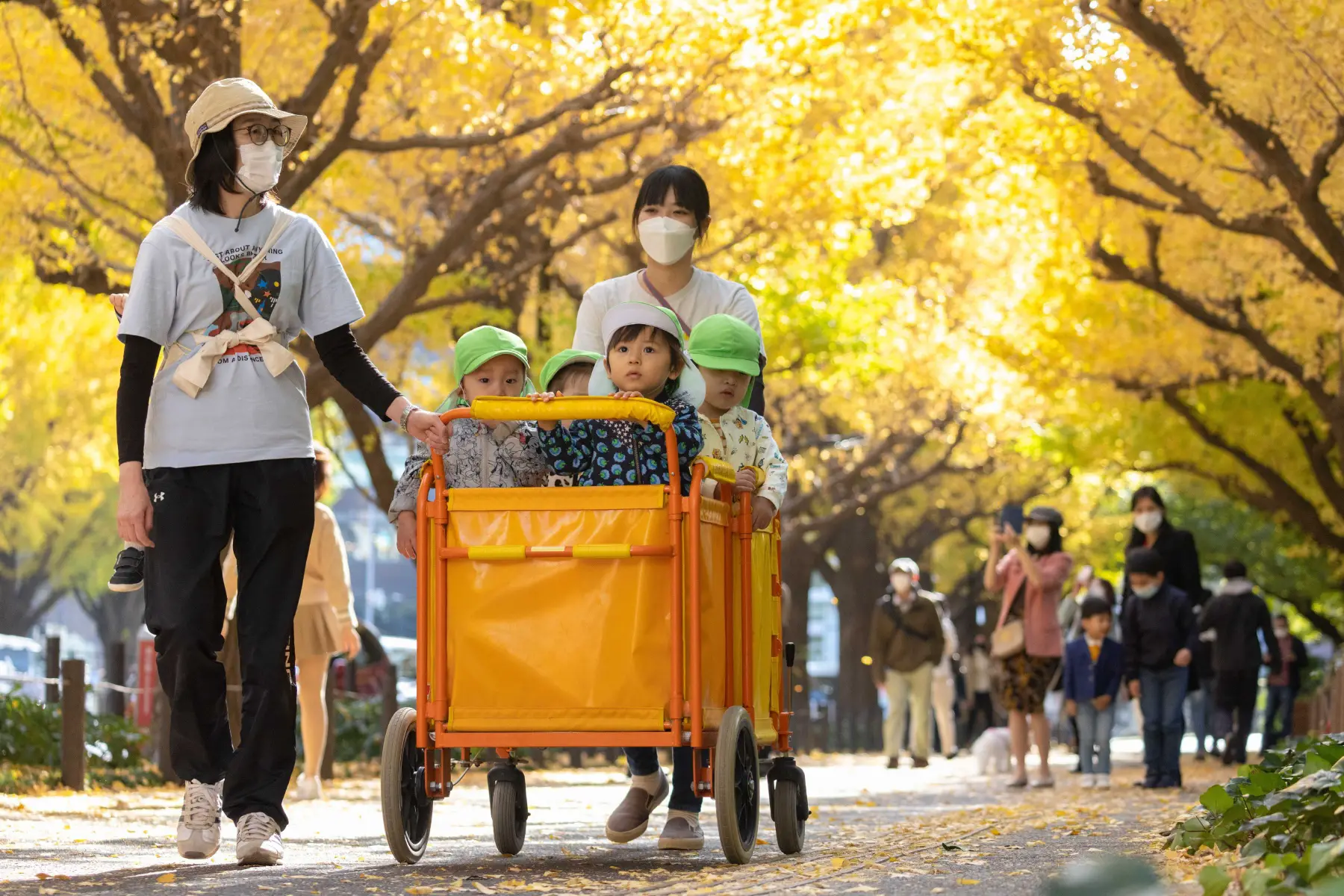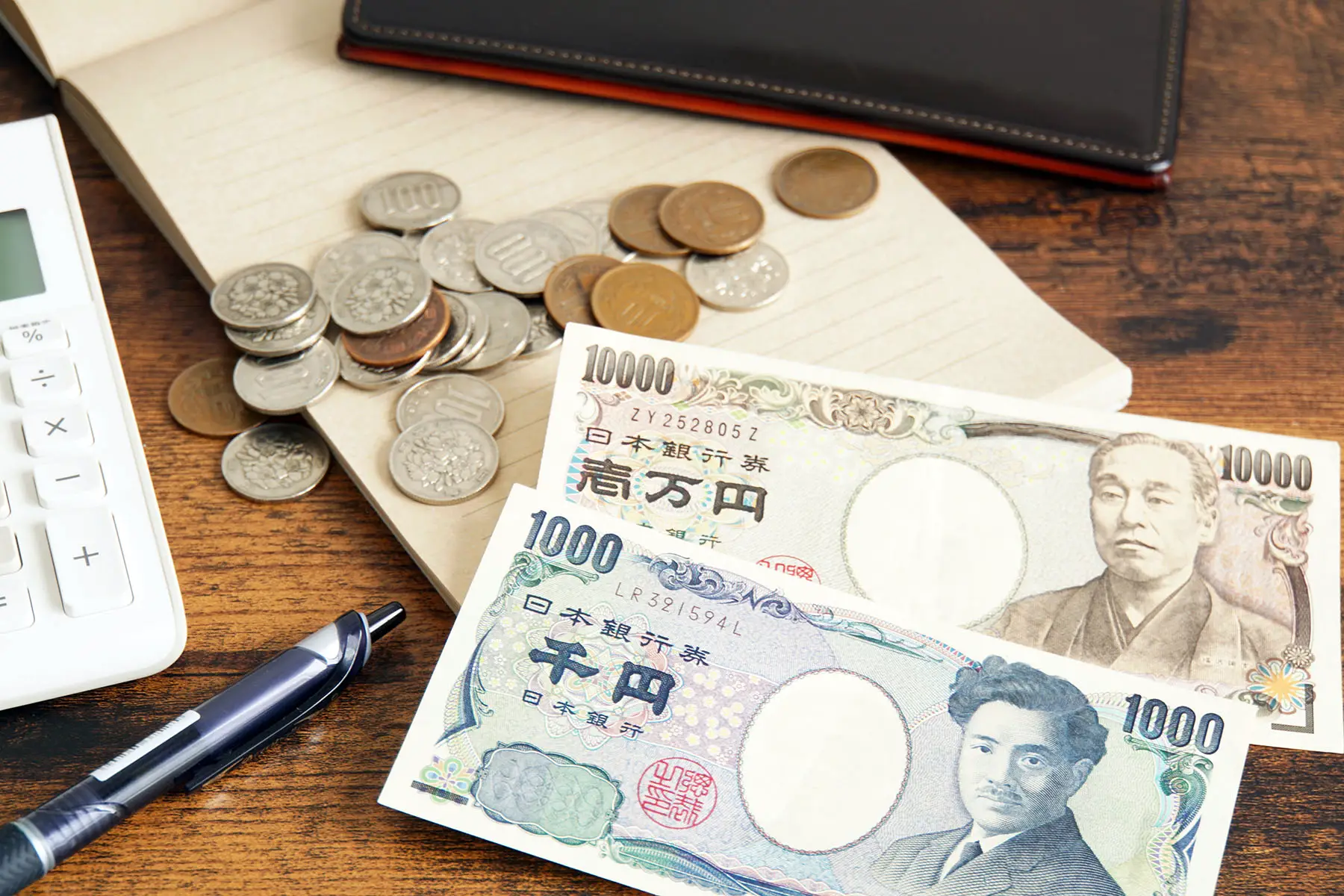Without a doubt, there is a lot to consider as you prepare for your move to Japan. Most notably, you will need to find a job, a place to live, and get your finances in order. You may even want to learn Japanese to help you better navigate these tasks.
Explore the following tips to make your move to Japan as stress-free as possible:
- Do your research before moving to Japan
- Decide which Japanese city to live in
- Arrange your visa before moving to Japan
- How do you bring your belongings to Japan?
- What license do you need to drive in Japan?
- Can your pet move with you to Japan?
- Sort out your Japanese health insurance
- When should you start looking for a job in Japan?
- Look into Japanese schooling and childcare options
- Sort out your finances before moving to Japan
- Start learning Japanese
- Delve into Japanese culture
- Useful resources
The Relocator
Planning a new life in Japan? Give yourself some peace of mind with The Relocator. On their easy-to-use platform, you'll be able to compare your options quickly, getting quotes from some of the biggest names in global relocations. Move abroad confidently with The Relocator.
Do your research before moving to Japan
Before moving to Japan, it’s essential to do your research to ensure the country is the right fit for you. It will give you a better idea of the local culture, how expensive it is, and the general quality of life.

To begin your search, check out these articles to familiarize yourself with life in Japan:
Decide which Japanese city to live in
You will have a wide choice of places when deciding where to live in Japan. That being said, it is essential to consider your lifestyle, career goals, and budget before choosing where to settle down.
Do you want to move to an urban area in Japan?
If you prefer a bustling city with exciting nightlife and entertainment, Tokyo or Osaka are great options. Japanese metropolises are naturally more expensive than rural areas but tend to have more job opportunities, convenient transportation, and recreational activities. Some international-friendly neighborhoods in Tokyo include Minato Ward, Meguro Ward, and Shibuya Ward.
Do you prefer to move to the countryside?
Is a quiet, rural environment with access to nature more your style? Then, areas such as Hokkaido or Kagoshima could be a good fit for you. Even though the Japanese countryside tends to have fewer job opportunities and is less cosmopolitan, you will enjoy a more relaxed lifestyle and benefit from a lower cost of living.
How do you find a place to stay when moving to Japan?
Consider moving into a serviced apartment upon arrival, as it is convenient and flexible. These apartments come fully furnished and typically include Wi-Fi and other amenities. They often don’t have fixed lease terms and are great as temporary accommodation.
The next step is finding a more permanent address once you know where you want to live. Of course, you must decide between renting or buying.
Renting may be safer while you settle into your new lifestyle and are not yet ready to be a homeowner. However, there are currently no restrictions on international buyers based on their residency status, nationality, or work visas.
Whether you choose to lease or purchase, the next step is to visit a real estate agent and arrange some viewings before settling on the perfect home for you.
Arrange your visa before moving to Japan
Before you cross Japan’s border, you will probably need a visa (e.g., work or spouse permits). While certain countries are exempt from short-term visas (i.e., stays of 15–90 days), most internationals residing longer will likely need one.
Without the correct immigration documents, you won’t be able to work, access healthcare, open a bank account, or enroll your children in school.
Generally, the paperwork and criteria for each differ, but the application process is straightforward. Still, it is a good idea to consider the processing times when booking your tickets.

If a company sponsors you, your employer will likely handle the process. However, the application can become more complex if you start your own business and apply for a self-sponsored visa.
It is important to note that once you obtain your permit, you must comply with the conditions, or you risk it being revoked or not renewed.
How do you bring your belongings to Japan?
Like with any big move, you will want to add comfort and familiarity to your new home by filling it with your belongings. Of course, international removals can be challenging and expensive, but with proper planning, it can be done smoothly.
The shipping option you choose depends on what you are bringing and how much money you plan to spend. For example, sea freight is best if you have many large items like furniture. However, this option is relatively slow. While air freight is a faster option, it can be costly.
Ultimately, you must research various companies to choose the best option for your situation and budget. Some international removal companies include:
- Nippon Express (日本通運, Nippon Tsuun)
- The Relocator
- Sirelo
In addition, it is essential to keep Japan’s customs regulations and restrictions in mind before shipping anything.
Buying and importing a car in Japan
Are you planning to drive in Japan? First, decide whether to import your car or purchase one in your new country. Remember that bringing it from abroad is expensive and involves a lot of bureaucracy and paperwork due to Japan’s strict emission standards and safety regulations.
You must find a registered importer if you decide to take your vehicle across. Once you’ve completed the paperwork and paid the customs taxes, you must organize a car inspection and register it with the Japanese government.
What license do you need to drive in Japan?
You must apply for an International Driving Permit (IDP – 国際運転免許証) if you do not have a Japanese driver’s license and plan on driving. The IDP is valid for 12 months. You can only do this if you already have a valid license issued in your home country.
After a year, you must exchange your original driving license for a Japanese one. If your home country has a reciprocal agreement with Japan, you can simply convert it. If not, you must pass a written and driving test to apply for a new one.
Can your pet move with you to Japan?
If you have a beloved pet, bringing them to Japan with you is certainly possible.
To ensure your pet is transported safely, consult a veterinarian or professional pet transfer service first to prepare your companion for their journey properly.

These experts will also help you adhere to the country’s strict health regulations by submitting the necessary paperwork, obtaining all required vaccinations, and following quarantine procedures properly.
Sort out your Japanese health insurance
Japan has an excellent healthcare system available to citizens and residents. As such, public health insurance in Japan is mandatory for everyone who lives there for more than three months.
Temporary visitors should take out a private insurance plan before traveling. If you work for a company full-time, you should be covered by employment-based health insurance.
Nonetheless, many still take out private health insurance to supplement their public healthcare plan. This gives patients access to a broader range of treatments and shorter waiting times.
When should you start looking for a job in Japan?
It’s best to start job hunting in Japan before you move since obtaining a visa is difficult if you don’t have a secured position. You can begin by checking out online job listings and researching Japanese companies that align with your career goals or professional interests.
While international companies may not require you to speak the native tongue, preparing a Japanese-style resume and brushing up on your language skills is a good idea.
Also, being aware of etiquette and social norms is essential. For example, understanding Japanese business culture – such as exchanging business cards and bowing (お辞儀, ojigi) – can help you make a good impression in job interviews.
Look into Japanese schooling and childcare options
Moving to Japan as an international family can be exciting, but navigating the education system can be challenging. It is mandatory for ages 6 to 15, and you can choose between international, private, and public schools.
Due to the high quality of teaching and affordability, most Japanese children attend state-funded public primary and secondary schools.
However, many immigrant families opt for international schools if their children cannot speak Japanese. It also makes the transition easier. Of course, their fees are expensive, and there may be long waiting lists or none available in your area if you move to a small town.

When it comes to local childcare, there are quite a few options. Daycares or nurseries and kindergartens or preschools are available for both working and stay-at-home parents. Most follow the Japanese school holiday calendar, and some even have flexible hours. More personalized care, such as nannies, babysitters, and au pairs, are also available but less common.
You will enjoy a wide choice of good universities if you want to study in Japan. While many lectures are in Japanese, some schools offer English and other language courses.
Sort out your finances before moving to Japan
You can use international money transfer services to help you manage your finances abroad. Such providers include:
You would also need a local bank account to manage most financial transactions in Japan. Ideally, you should open it up before you arrive, which may be difficult as most Japanese banks require proof of identity (e.g., passport or My Number Card – マイナンバーカード) and immigration status (e.g., visa or residence card).
While living and working in Japan, you must pay taxes (e.g., income tax) and contribute to the pension system. Aside from health insurance, consider other insurance in Japan, such as car, life, and pet protection, especially if you plan to settle and retire there.
Start learning Japanese
Japanese is the primary language spoken in Japan, and only a small portion of the population is fluent in English and other languages. Therefore learning the language is essential to perform everyday tasks like banking, grocery shopping, going to the doctor or dentist, or even using public transport.

Not only will your newly acquired language skills help you at work, but it will also allow you to immerse yourself more into the culture as you’ll better understand etiquette and social norms.
Japanese language resources
You might want to start learning Japanese by practicing some common words and expressions. Many language-learning apps can help. Some options include:
You can even try to find language classes at local universities or attend a course at a Japanese language school.
Delve into Japanese culture
Researching Japan’s history and culture is a great way to get to know the country before moving there. You can also learn more about its society by immersing yourself in popular Japanese books, films, and tv shows. Or, what could be more fun than trying delicious Japanese cuisine or even making a few recipes yourself?
Participating in public holidays and festivals once you live in Japan will further inform your cultural knowledge.
If you want more information about moving abroad, check out our ultimate moving abroad checklist.
Useful resources
- Ministry of Foreign Affairs (MOFA) (外務省, Gaimu Sho) – official government guide on relocating to Japan (PDF)
- JapanGov – official web portal of the Government of Japan with information on the environment, visas, women’s rights, and more










